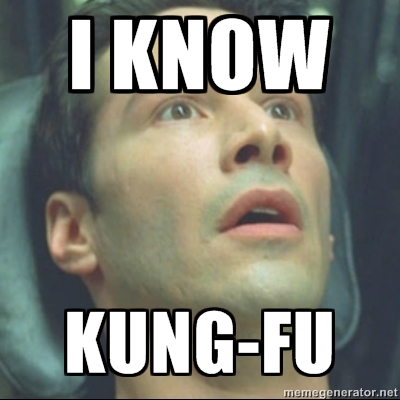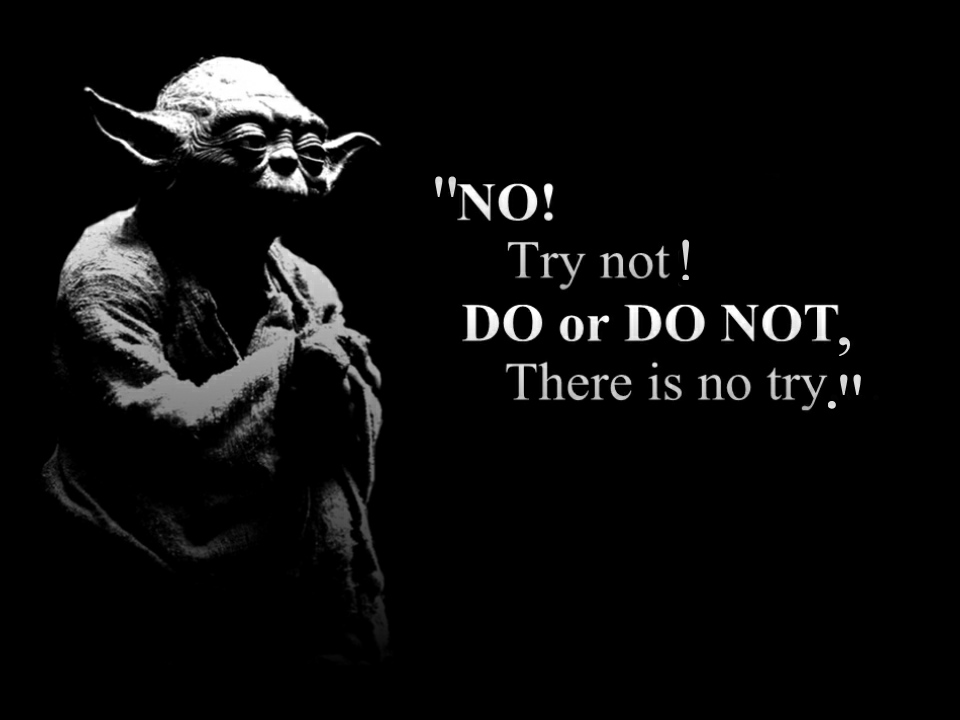 |
| From a Zen Koan, anyone who has attempted to gain mastery in something has probably experienced this to some degree, but it doesn’t usually happen in the education system. |
I always have my ear to the ground, waiting to hear from a student who wants something more than curriculum. On a good year I’m lucky to find one or two students who are looking for a career rather than a credit.
I came across this saying the other week and it got me thinking about that hope I hold out for ready pupils. Teachers are paid to deliver curriculum whether students are ready or not (though the good ones try to minimize this friction); students are mandated to be there. The option to be formally uneducated isn’t available in Ontario nowadays, we’ve institutionalized education into a mandatory process. This regimented system reduces student readiness to engagement and throws the concept of patiently waiting for student readiness out the window. That patience suggests a process where student learning is the main focus. Have we lost the freedom to patiently wait for student readiness to the systemic efficiencies of regimented grading?
That a teacher will appear when you need them to advance your learning is a wonderful thought. It suggests that teaching is implied in mastery, which isn’t the case nowadays. In a time before mastery was monetized, keeping it alive by passing on skills rather than maximizing personal income was a big part of mastery. Waiting on student readiness also places great value on the student, making their preparedness the priority in learning. Engagement isn’t an issue with the student who seeks a teacher. Perhaps the issue is that we’re buried in teachers nowadays.
That the teacher-student relationship has been subverted by the education system is old news. Historically, learning was an experience unique to each individual, usually prompted by innate skill and desire. Systematizing education might mean more people get educated, but not in with the same rigour and certainly not for the same reasons.
Perhaps the most damaging aspect of systemic education is the externalization and abstraction of learning criteria. By setting standards and holding students to them we create a system that has measurable criteria for curriculum, teacher and standards effectiveness. We do this to create the appearance of academic credibility, so learning is not the focus of this kind of education, system integrity is. This modern approach to learning creates a strange distance in the classroom from learning which has led to such insightful comments as, “Those who can do, those who can’t teach.”
When the Zen koan that kicked this off was written a thousand years ago people who taught did so from their own mastery and were driven to do it to keep their expertise alive. Students were driven to learn from a radical sense of self preservation; their learning was central to their lives and livelihood. Teaching wasn’t considered a skill in itself, but was an important tool to keep mastery alive. When we separate teaching from mastery, as helpful as that is for school systems to generate curriculum, qualify teachers and graduate students, it leads us to a strange place where teaching and learning have little to do personally with the people in the classroom. Education has only evolved into this odd system in the past two centuries.
For the vast majority of human history education has been a bespoke experience, unique to the individual. It didn’t happen on a rigid timeline overseen by bureaucrats, and it often didn’t happen at all. When it did happen it was focused on mastery learning, which couldn’t happen until the student was ready for it. That kind of patience is missing from our classrooms and is one of the main reasons it feels so forced, and fake.
Imagining that pre-industrial intensely personal world of learning from our perspective way up here in the regimented twenty-first Century is difficult, yet it is how human beings learned for millennia. In that long ago world many people were left behind, but for the few who were driven to achieve excellence the master would appear when needed.



















